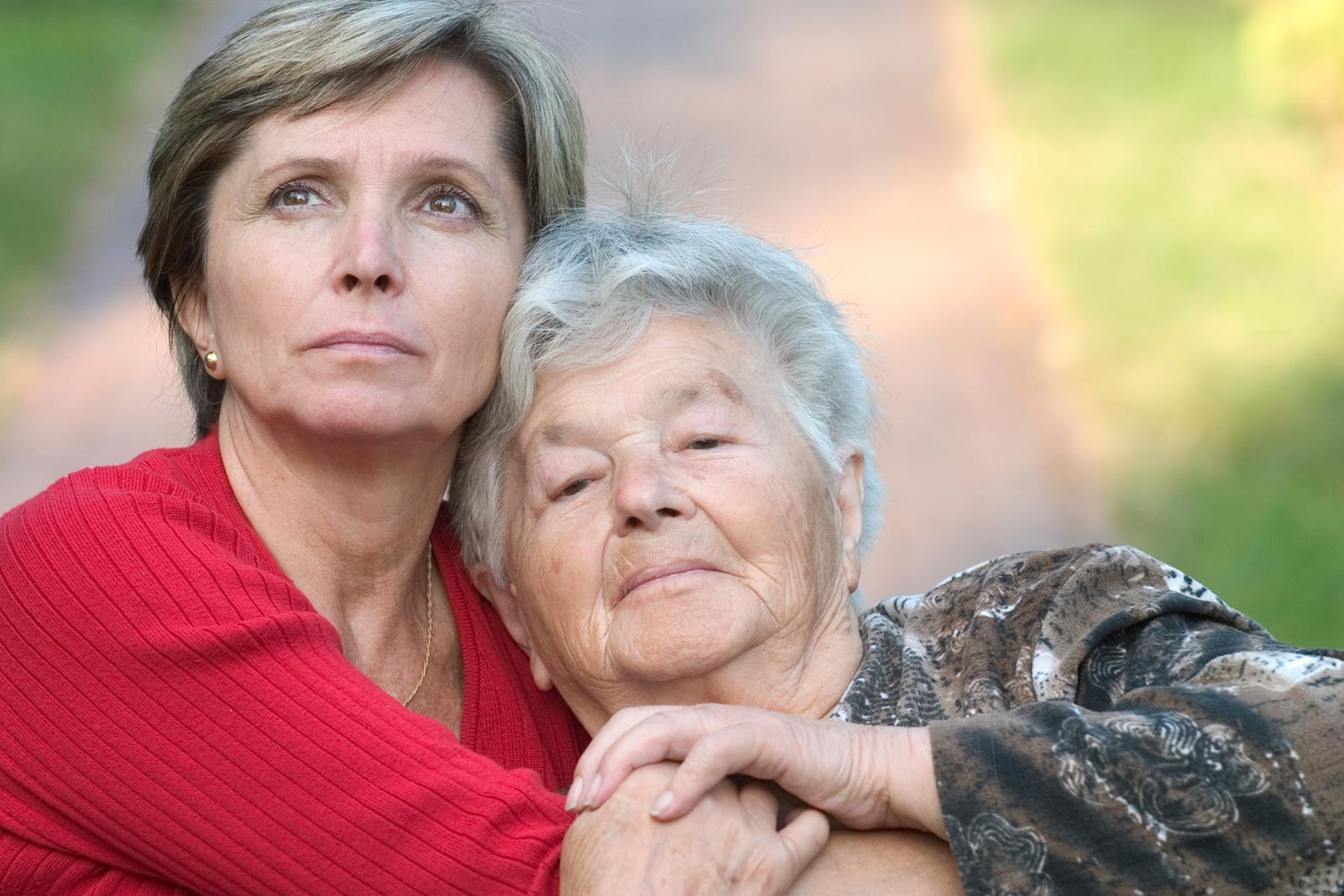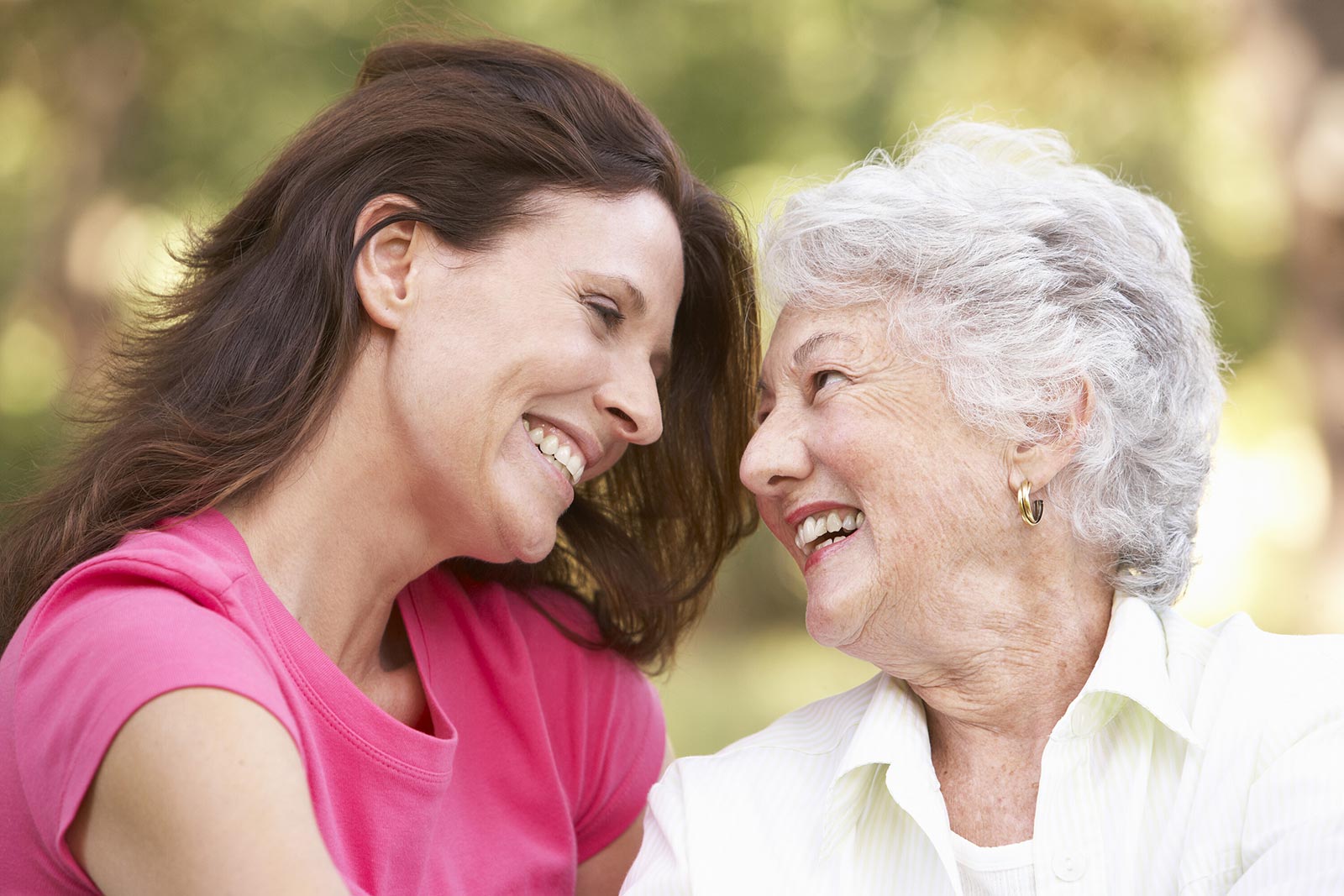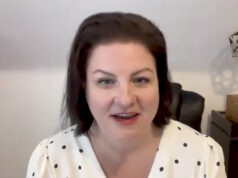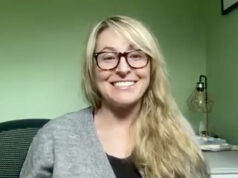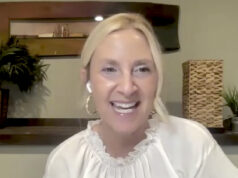And welcome back, everyone, to Answers for Elder’s Radio Network. And we are here again with the wonderful Lianna Marie, who is the author of an upcoming book called “The Parkinson’s Path,” and you can also check her out with “The Complete Guide for People With Parkinson’s Disease and Their Loved Ones” and also the book “Everything you Need to Know about Caregiving for Parkinson’s.” And I am honored to have Lianna with us again for this hour, and I also encourage all of you to check out her other podcasts on our network. She’s got a lot of them, and we are just really thrilled to have her back in the fold and sharing her knowledge and her expertise. And so Lianna, I’m gonna take you back again end to your own experience, because I think it’s really important that we really spend some time on your background. And we talked a little bit about being an advocate, and you touched a lot about the family dynamic and how that worked for you when [your Mom] was first diagnosed, and how your role changed, and I would like to just go back to that time. I can only imagine what it would be like to hear that diagnosis from the woman that gave you life. What was that like for you when that first happened?
– Well, first of all, thanks for having me, and yeah, it’s weird when I look back. In hindsight, things are quite a bit different. But honestly, I was in my mid teens at the time when my mom was diagnosed, and I had not until that point noticed that there was anything “wrong” with my mom, so when she told us she had Parkinson’s disease, it was an absolute, complete shock, mostly because, like I said, I didn’t notice that anything was wrong. And then she pointed out her little tremor that she had in her pinky finger and her left pinky finger, and I was like, oh, somehow she had been hiding that from us for a few years, actually, up till that point. Initially I was shocked – for me, and as a daughter, I was just not sure what that meant. So, and as I’ve spoke about before, it was I guess maybe good timing, if you want to say that, that Michael J. Fox had also been diagnosed at that time, so Parkinson’s was just recently out into the public, more to the forefront. So I guess there could have been a little bit of comfort in knowing that, Okay, well there’s somebody recognizable who has this, and he looks all right – again, this is a 16-year-old who’s trying to figure out what what this is going to be? And honestly, we went pretty quickly from shocked — at least I went from shocked — to “we don’t have time for Parkinson’s.” I remember my Mom saying that. Diseases don’t choose the time that they show up. My mom was in the middle of just a really messy divorce with my dad, and she was just, I got this stuff over here, so Parkinson’s, you’re gonna have to move over here because I got this to deal with, and so from shocked to okay, let me figure out what I gotta figure out, and so that eventually turned into me helping her get some practical information about the disease, and like what is this going to look like, et cetera.
– Which, as a team, is amazing that you did that. And here’s the other side that I’m reminded of. I am reminded of the Five Stages of Grief by Elizabeth Coopler Ross. And I mean, with that kind of a diagnosis, I really believe the grief process starts right then, because you’re dealing with now, all of a sudden, this shock of “my world’s going to change.” It brings you a new life, things are never the same from there forward. It’s always the time before Parkinson’s and the time after Parkinson’s. You had to adjust at a very young age, being a teen. What was that like for you? And I can only imagine what was the hardest part for you?
– Well looking back on all the years, I would say the biggest, the hardest heart-wrenching part is, for anyone, watching your loved one lose the ability to do things for herself and then to think, ultimately she, unfortunately, succumbed to dementia. So it’s seeing frustration on her face, or seeing the disappointment on her face that she can’t, let’s say at the beginning, it’s do up a button, and then later on it becomes she can’t walk all the time, or she can’t garden the way she loved to do, or, she was a big knitter. She couldn’t do that much anymore. Not to focus on other things she lost, because there were things that she gained perspective on.
Parkinson’s makes you slow down. It literally makes you slow down, and then it makes you pause, “Okay, what’s most important in my life?” And that piece turned out to be a very big blessing for my mom, putting the most important people at the forefront of her life and getting rid of all the negative, and the people that were not helpful, out of her life. And so the hardest part would have been, seeing her lose the things. But then I always want to switch the table and we try to focus on what was the thing, I try to be hopeful and looking back and saying, wow, there wasn’t all bad. There was some good stuff.
– Did you understand at the time when all of this was happening at a younger age, were you able to talk about death, or her fears of any of those things? Was that something that was talked about in your family?
– You know what, that’s a really good question, because at the time, no. Certainly, though, I do remember my mom coming home from a doctor’s appointment and saying, “Great news, the doctor says I have the ‘good’ kind of Parkinson’s, meaning because she had the resting tremor, it meant that she probably was going to have a longer journey with Parkinson’s. They could at least say, judging from this type — again there’s lots of different kinds of Parkinson’s — from hers, that she most likely was going to have a long journey, and that it would be ten to 15 years before she’d probably have to stop her job, which was actually ended up to be accurate, So, for us, we weren’t necessarily thinking imminent doom right away. There were definitely a lot of questions.
And, in hindsight, I wish I had learned more about – or someone had taught us about – the non-motor symptoms of Parkinson’s, because mostly we thought it was the tremor, the speech, various things that everybody knows now are related to Parkinson’s. But no one told us that anxiety, depression, apathy were parts of this disease, and that’s a, if you call it a regret, I don’t know.
And that’s one of the reasons why I was asking you, because I can only imagine being a young age as you were. You’re just trying to figure all this stuff out on your own. You’re not even adult yet, but there’s all this heaviness that’s come into your life. You’re operating from a young age, and all of a sudden you’re in a situation where you’re having to care for somebody that’s cared for you, in many ways, that is a very young age to make that shift.
-Yeah, for sure. And at the time, it was my, if you will, “job.” Quickly, I took on the role of cheerleader, like, all right, Mom, we’re in this together, We’re gonna do this Parkinson’s thing, and what are the ways that I can be… I had a bit of coaching back then. I was an athlete, and so I looked at it from a coaching perspective, and in my early 20s and then in mid 20s, that’s sort of how I looked at it. “Okay, Okay, let’s get her hydrated, right, which actually it’s really important in Parkinson’s, okay, but that was sort of like, Okay, I’m going to take care of these practical aspects of her disease that I can help her control. And that’s sort of the role I took on initially, and so and I think it’s really important for people to know that. Cheerleading is really important. Being the optimist, helping them look at the bigger picture, sometimes…
– Especially if she has the despair that she had and the anxiety, she needed someone to pull her out of that, which is good. So what are you most proud of?
– Well, I don’t like using the word, but on the other hand, if I were to toot my own horn, I would say advocating, in the end, meaning many years of her when she was living in long-term care. She lived in long term care for eight years, and it was the advocating and really being present for a lot of those years, whether it be physically at the home that she was living under, the various different long-term care she was living in, being on the phone or what have you, and advocating for the quality of care. Because I really saw the difference of when we when more involved versus when we weren’t involved in her care, and the level of care she received. And at the end, my mom was in a home very close to where her sister and my aunt lived, and all of us say that it we did the best with what we had. And I believe with my heart that my mom did get the very best care she possibly could have in light of the hand that we were dealt. And that’s that I am proud of that.
– It’s a hard question to answer, I think in many cases because we all know things later that we probably could have done, but we weren’t there then. And so the idea that you have had the time to reflect on it, there’s some things you’re going to look back on from 10,000 feet and say I should have done this, and I should have done that. But also, no doubt, your mom has to have been very proud of you.
– We did the best with what we had at the time, with the information that we had at the time, and the knowledge, and you gotta trust that you did the best. And I do.
– And so for those of you that are really interested in checking out Lianna’s work, your books are available on Amazon, I’m assuming, and where else?
– Oh yeah, for sure, Amazon. You can order them through Barnes & Noble, any outlet basically you can order the books, but living out in the Pacific Northwest and Seattle, we seem to be dominated by Amazon. So usually people say I found you on Amazon, but yeah, that’s really where and and in this case, I, you know, I really recommend the Caregiving Book for people who people who are either starting out, have questions, in mid stages of care partnering, caregiving and that could be a start. And also our Facebook page, All About Parkinson’s on Facebook, we have a special group that you can get into if you are a care partner, caregiver in it, and that really gets into the more details. It’s basically hearing from other people that are walking the same perfect journey as you.
– Perfect. And speaking of caregiving, Lianna and I will be right back, talking about caregiving for Parkinson’s right after this.






